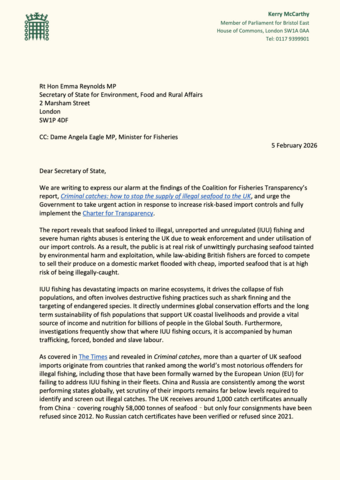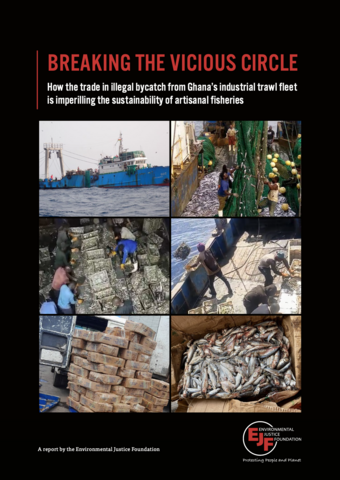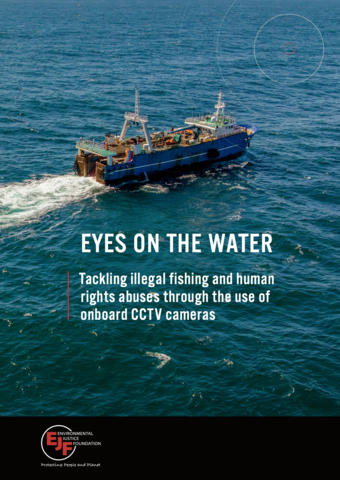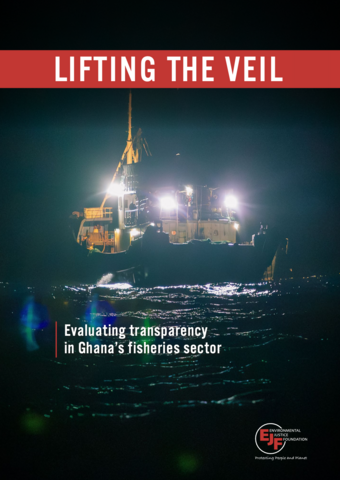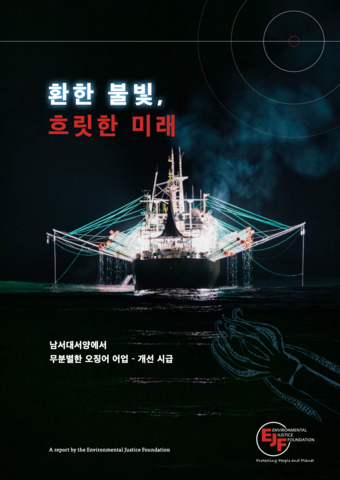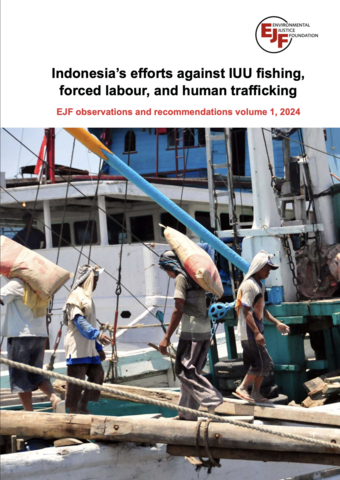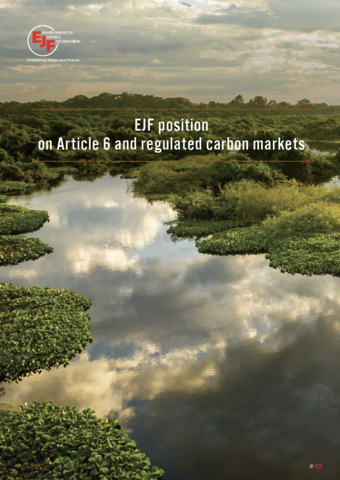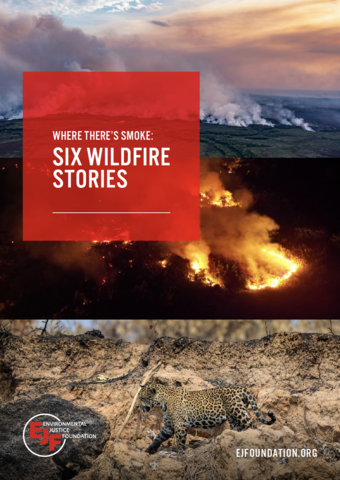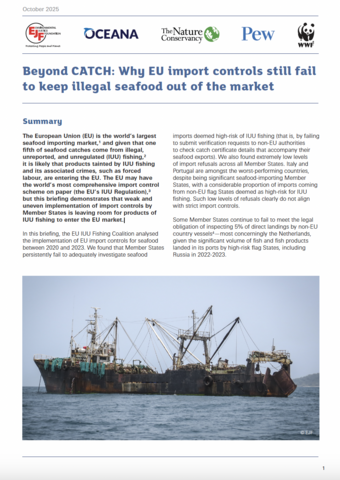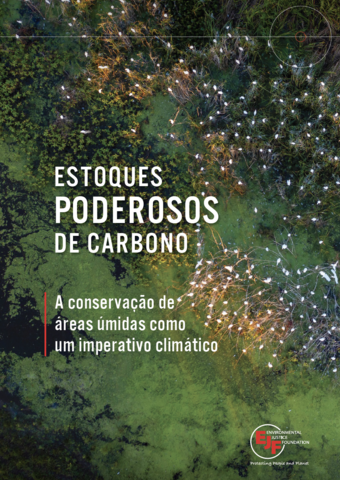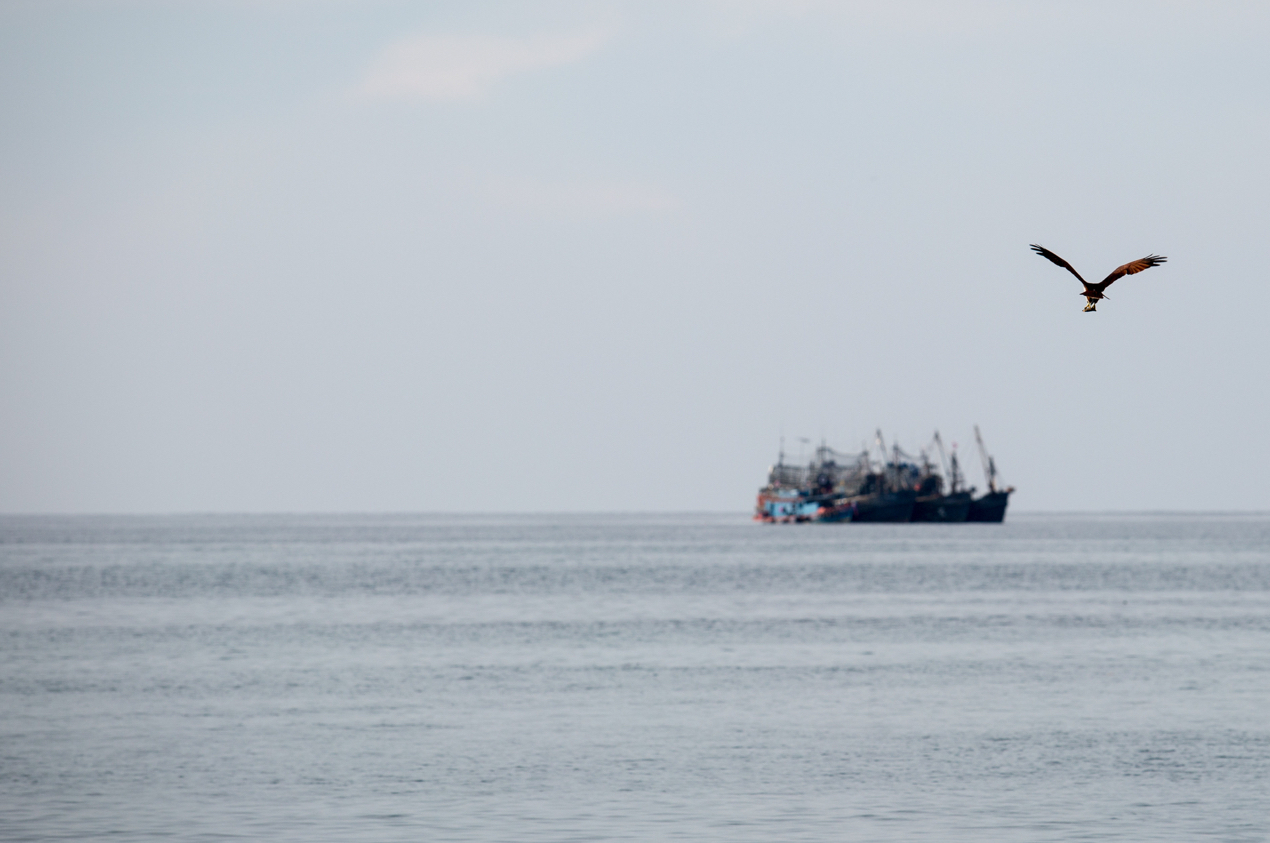
Search results
Showing 1-40 result returned for ""
-
News & Media
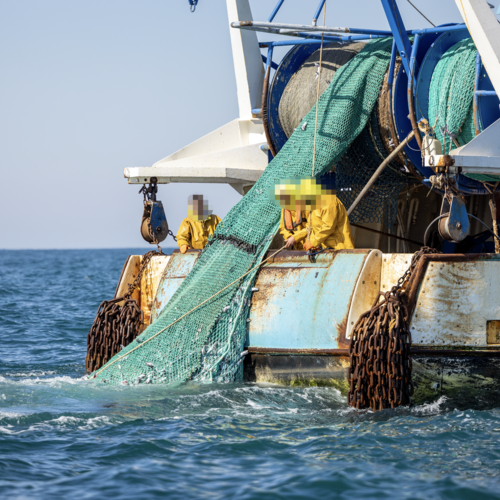 Feb 10, 2026Chausey: une nouvelle étape judiciaire pour protéger une aire marine Natura 2000Read
Feb 10, 2026Chausey: une nouvelle étape judiciaire pour protéger une aire marine Natura 2000Read -
Reports
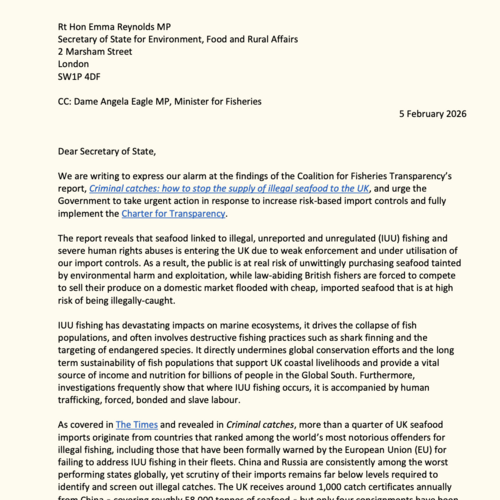 Feb 05, 2026Parliamentary letter on UK's seafood importsRead
Feb 05, 2026Parliamentary letter on UK's seafood importsReadIn this letter to Emma Reynolds MP (Secretary of State at the Department of Environment, Food and Rural Affairs) and Dame Angela Eagle MP (Minister for Fisheries), over 40 parliamentarians express their alarm at the ongoing failure to adequately scrutinise the UK’s seafood imports and the risk this poses to consumers, fishers and the marine environment. They urge the environment and fisheries ministers to take action to strengthen the UK’s import control system, to prevent the country from becoming a dumping ground for illegal and slave-caught seafood.
-
News & Media
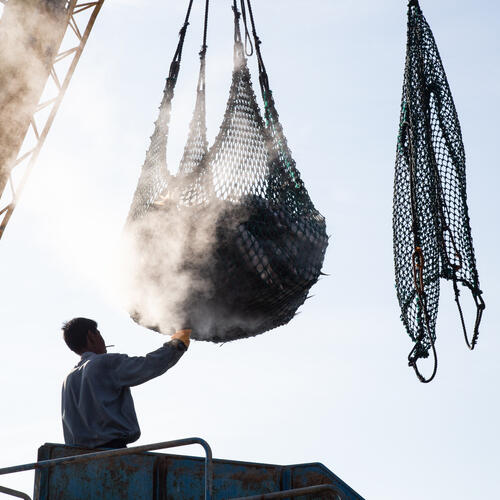 Feb 05, 202644 UK parliamentarians call on ministers to strengthen seafood import controls and protect UK consumers, fishers, and businessesRead
Feb 05, 202644 UK parliamentarians call on ministers to strengthen seafood import controls and protect UK consumers, fishers, and businessesRead -
Reports
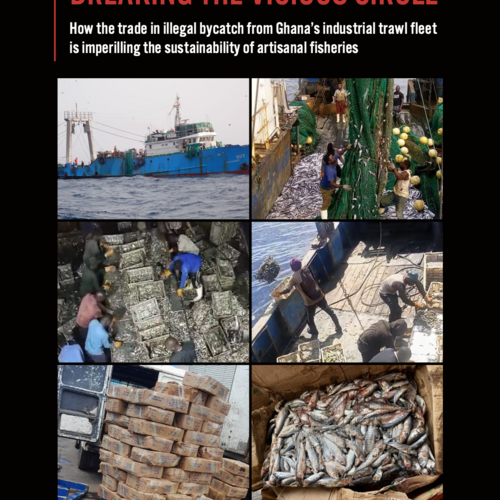 Feb 04, 2026Breaking the vicious circle: How the trade in illegal bycatch from Ghana’s industrial trawl fleet is imperilling the sustainability of artisanal fisheriesRead
Feb 04, 2026Breaking the vicious circle: How the trade in illegal bycatch from Ghana’s industrial trawl fleet is imperilling the sustainability of artisanal fisheriesReadPopulations of small pelagic fish traditionally harvested by artisanal fishers in Ghanaian waters are severely overfished and in a state of collapse. The alarming state of Ghana’s small pelagic fisheries results in part from persistent illegal, unreported and unregulated fishing by the largely foreign-owned industrial trawl fleet. The use of illegal fishing gear by trawlers results in large volumes of bycatch, known locally as logo fish - juvenile and undersized fish which are either discarded or sold to coastal communities for profit.
Urgent action is needed to break this vicious circle and ensure a more sustainable and equitable future for Ghana’s fisheries.
-
News & Media
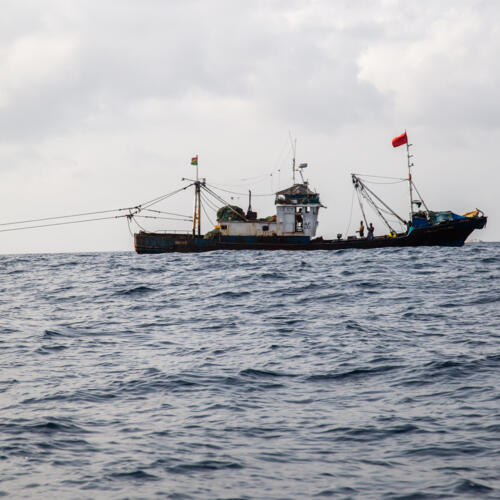 Feb 04, 2026Breaking the vicious circle: urgent action needed to safeguard Ghana’s fisheriesRead
Feb 04, 2026Breaking the vicious circle: urgent action needed to safeguard Ghana’s fisheriesRead -
Films
 Jan 28, 2026Discarded: Hidden Overfishing in the EURead
Jan 28, 2026Discarded: Hidden Overfishing in the EUReadDiscarded: Hidden Overfishing in the EU
In European waters, fish are caught and dumped at sea to make room for more valuable catch. This practice, known as highgrading, is illegal, but unfortunately most cases go unreported.
This extremely wasteful and unsustainable practice puts pressure on struggling ecosystems and harms honest fishers’ livelihoods. Transparency is the key to protecting these ecosystems and ending this widespread illegal practice.
-
Reports
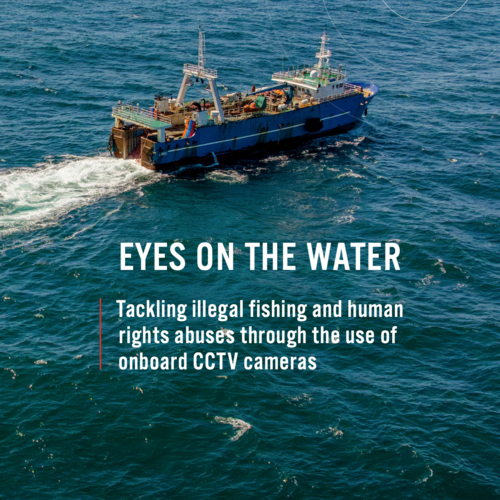 Jan 28, 2026Eyes on the water: Tackling illegal fishing and human rights abuses through the use of onboard CCTV camerasRead
Jan 28, 2026Eyes on the water: Tackling illegal fishing and human rights abuses through the use of onboard CCTV camerasReadIllegal, unreported and unregulated (IUU) and unsustainable fishing places immense pressure on the world’s oceans. These destructive practices go hand in hand with human rights violations and labour abuses. A major challenge in effectively tackling these issues is that much of this harmful activity occurs in the middle of the ocean, where it is easier to avoid detection.
The findings of this report show that the adoption of fleet-wide CCTV, as a key tool within broader monitoring, control and surveillance systems, has massive potential to enhance transparency, tackle IUU fishing, and address human rights abuses at sea.
-
News & Media
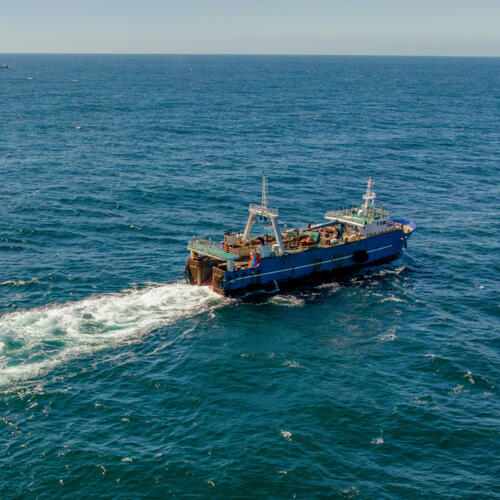 Jan 28, 2026CCTV at sea could dramatically reduce illegal fishing and human rights abuses: new reportRead
Jan 28, 2026CCTV at sea could dramatically reduce illegal fishing and human rights abuses: new reportRead
-
News & Media
 Jan 28, 2026Les caméras embarquées pourraient réduire drastiquement la pêche illégale et les atteintes aux droits humains en mer, selon un nouveau rapportRead
Jan 28, 2026Les caméras embarquées pourraient réduire drastiquement la pêche illégale et les atteintes aux droits humains en mer, selon un nouveau rapportRead -
News & Media
 Jan 28, 2026Las cámaras a bordo podrían reducir drásticamente la pesca ilegal y los abusos de derechos humanos en el mar, según un nuevo informeRead
Jan 28, 2026Las cámaras a bordo podrían reducir drásticamente la pesca ilegal y los abusos de derechos humanos en el mar, según un nuevo informeRead -
Reports
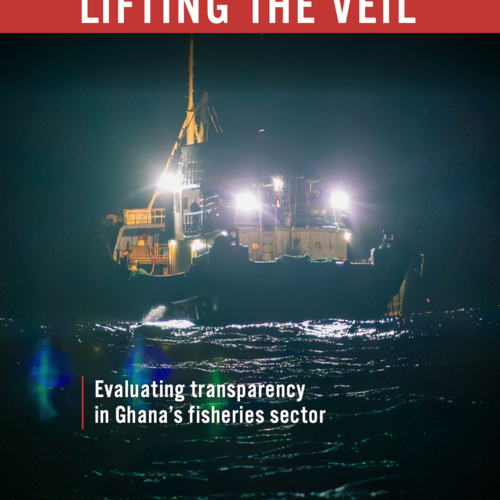 Jan 19, 2026Lifting the veil: Evaluating transparency in Ghana's fisheries sectorRead
Jan 19, 2026Lifting the veil: Evaluating transparency in Ghana's fisheries sectorReadIllegal fishing and overfishing risk the collapse of Ghana’s fish populations, directly undermining the most basic human rights of coastal communities, and costing the country millions of dollars every year. Greater transparency is needed to achieve sustainable, legal, and ethical fisheries.
This analysis aims to inform and guide this action, and to assist Ghana in moving from commitment to the Global Charter to full implementation, ensuring that the benefits of transparency are secured for the many Ghanaians who depend on fisheries resources for their livelihoods.
-
Reports
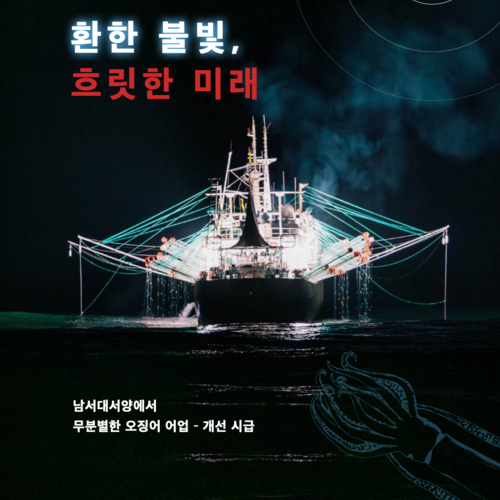 Jan 19, 2026환 한 불 빛 , 흐 릿 한 미 래Read
Jan 19, 2026환 한 불 빛 , 흐 릿 한 미 래Read본 보고서는 남서대서양 아르헨티나 오징어 어업에 대한 EJF 조사 결과를 제시한다. 세계 최대 규모의 오징어 어장 중 하나인 남서대서양 공해 지역은 관리 감독이 없는 비규제 해역이다. 매년 수백 척의 원양 어선들이 몰려들어, 오징어가 먹이를 좇기 위해 또는 산란지로 가기 위해 아르헨티나 해역에서 벗어나자마자 포획한다. 위성 사진에서도 관측될 정도로 거대한 규모의 이 어선들은 지난 10년간 급증했다. 이는 오징어에 대한 수요 증가와 더불어 어선들이 기존에 잡던 어종을 더 이상 양껏 조업하지 못하게 되면서 오징어로 목표 어종을 전환했기 때문이다. 조사 기간 동안 해당 지역에서 중국 오징어 어선의 조업 시간은 거의 두 배로 증가한 반면, 어획량은 감소하는 우려스러운 징후를 보인다. 즉, 자원량이 위기에 처했음을 시사한다
-
Films
 Jan 17, 2026The High Seas: A Global Deal to Protect Our OceansRead
Jan 17, 2026The High Seas: A Global Deal to Protect Our OceansReadThe High Seas: A Global Deal to Protect Our Oceans
The UN High Seas Treaty has entered into force, and we celebrate this exciting moment for ocean protection. It is evidence that a rules-based order can still deliver in the face of escalating environmental breakdown.
-
News & Media
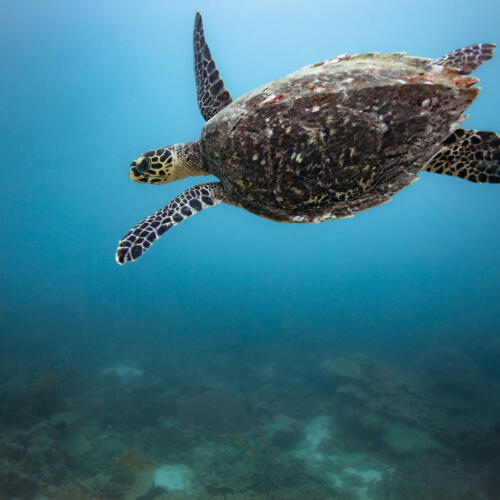 Jan 17, 2026High Seas Treaty "can end an era of exploitation", says Environmental Justice Foundation: press releaseRead
Jan 17, 2026High Seas Treaty "can end an era of exploitation", says Environmental Justice Foundation: press releaseRead -
News & Media
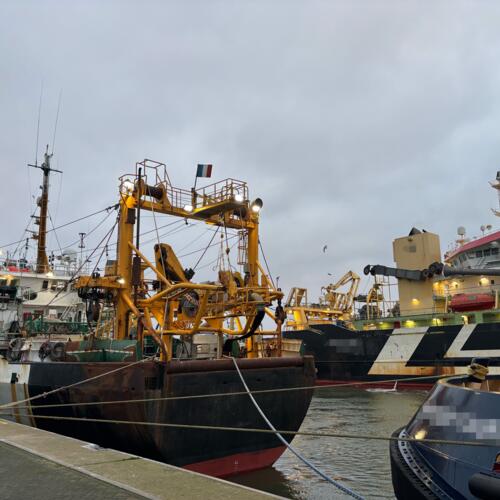 Jan 12, 2026Global lessons on discard bans: what the EU can learn as it evaluates the landing obligationRead
Jan 12, 2026Global lessons on discard bans: what the EU can learn as it evaluates the landing obligationRead -
Films
 Dec 15, 2025Before You Board: The Hidden Risks of Distant Water FishingRead
Dec 15, 2025Before You Board: The Hidden Risks of Distant Water FishingReadBefore You Board: The Hidden Risks of Distant Water Fishing
Every year, thousands of Indonesians work as fishers on foreign boats, promised high wages for work abroad. However, the reality of life at sea can be very different from what is promised. Once onboard, fishers are routinely overworked, abused, and exploited.
Are you thinking of taking a job on a distant water fishing vessel? Watch out for these warning signs:
🚩 The recruitment agency doesn't have a valid licence or has a bad reputation. A company's SIUKAK/SIUPPAK permit can be found on the official Ministry of Transportation website, while its SIP3MI permit can be checked on the Ministry of KP2MI website.
🚩 The recruitment agency offers loans
Loans through banks or cash advances from companies are often used to pressure crew into accepting low salaries or prevent them from terminating their employment contracts.
🚩 Lack of transparency about salary
The recruitment agency receives crew's salary in advance before transferring it to their personal account. This creates an opportunity for companies to illegally "take a share" of crew's salary.
🚩 Retention of identity documents
Confiscation of passports, ID cards, family cards, and other personal documents controls migrant workers' movements while working.
🚩 Offered work on Chinese-flagged ships
Several human rights organisations have documented various human rights violations and allegations of forced labor against Indonesian migrant workers on Chinese-flagged ships.
(The footage used is illustrative and does not necessarily show the boats discussed by the fishers.)
-
Films
 Dec 15, 2025Sebelum Anda Naik Kapal: Risiko Tersembunyi dari Kapal Penangkap Ikan Jarak JauhRead
Dec 15, 2025Sebelum Anda Naik Kapal: Risiko Tersembunyi dari Kapal Penangkap Ikan Jarak JauhReadSebelum Anda Naik Kapal: Risiko Tersembunyi dari Kapal Penangkap Ikan Jarak Jauh
-
Films
 Dec 11, 2025The Forests of Life: How Mangroves Sustain Ghana's Fisheries, Coastline, and Climate – an EJF filmRead
Dec 11, 2025The Forests of Life: How Mangroves Sustain Ghana's Fisheries, Coastline, and Climate – an EJF filmReadThe Forests of Life: How Mangroves Sustain Ghana's Fisheries, Coastline, and Climate – an EJF film
Mangroves sustain communities, shield coasts, and store vast amounts of carbon. In Ghana they are vanishing fast – but their protection is within reach through safeguarding, restoration, and community leadership.
In partnership with Hen Mpoano, watch our short documentary, which reveals how local action and stronger policy can revive these vital ecosystems. -
News & Media
 Dec 11, 2025Beneath the Canopy: New film reveals the power of mangrove restoration in GhanaRead
Dec 11, 2025Beneath the Canopy: New film reveals the power of mangrove restoration in GhanaRead -
Reports
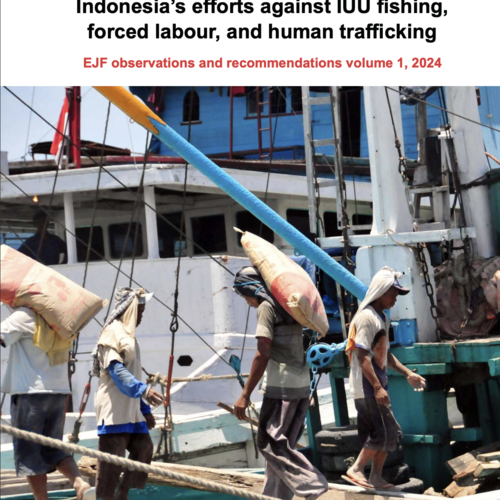 Dec 04, 2025Indonesia’s efforts against IUU fishing, forced labour, and human trafficking - EJF observations and recommendations volume 1, 2024Read
Dec 04, 2025Indonesia’s efforts against IUU fishing, forced labour, and human trafficking - EJF observations and recommendations volume 1, 2024ReadThis briefing details EJF’s ongoing observations and analysis of the Government of Indonesia's (GOI) monitoring, control, and surveillance (MCS) mechanisms, aimed at detecting, investigating, and prosecuting incidences of IUU fishing, as well as associated human rights abuses, forced labour, and human trafficking. It provides comprehensive recommendations for GOI agencies to address identified gaps within these mechanisms, focusing on issues arising during both at-sea patrols and port-side vessel inspections. Additional fisheries regulatory analysis highlights gaps in implementation and law enforcement.
-
News & Media
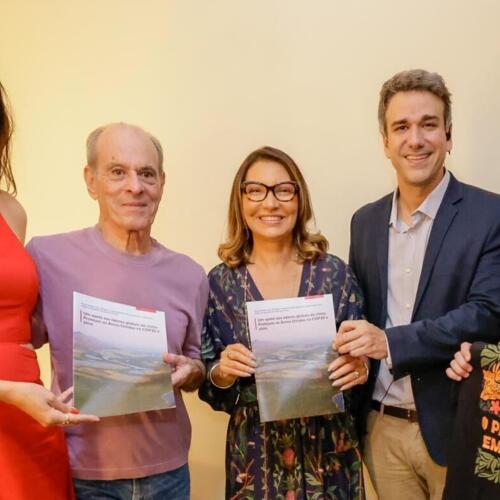 Nov 17, 2025As áreas úmidas ganham destaque na COP30 com a primeira dama do Brasil recebendo carta aberta que pede sua proteçãoRead
Nov 17, 2025As áreas úmidas ganham destaque na COP30 com a primeira dama do Brasil recebendo carta aberta que pede sua proteçãoRead -
News & Media
 Nov 17, 2025Brazil's First Lady accepts open letter requesting protection of the Pantanal and other wetlands at COP30Read
Nov 17, 2025Brazil's First Lady accepts open letter requesting protection of the Pantanal and other wetlands at COP30Read -
News & Media
Nov 13, 2025Twenty Years After Francisco Anselmo’s Sacrifice, Environmental Leaders Call for Urgent Action to Save the Pantanal at COP30Read
-
News & Media
Nov 13, 2025EJF partage des témoignages sur la crise mondiale des feux de forêt alors que la COP30 se poursuit au BrésilRead
-
News & Media
Nov 13, 2025EJF comparte historias sobre la crisis mundial de incendios forestales mientras continúa la COP30 en BrasilRead
-
News & Media
Nov 13, 2025EJF compartilha histórias sobre a crise global de incêndios florestais durante a COP30 no BrasilRead
-
News & Media
Nov 13, 2025EJF macht auf die globale Waldbrandkrise aufmerksam, während die COP30 in Brasilien fortgesetzt wirdRead
-
News & Media
Nov 13, 2025EJF shares stories of the global wildfire crisis as COP30 continues in BrazilRead
-
News & Media
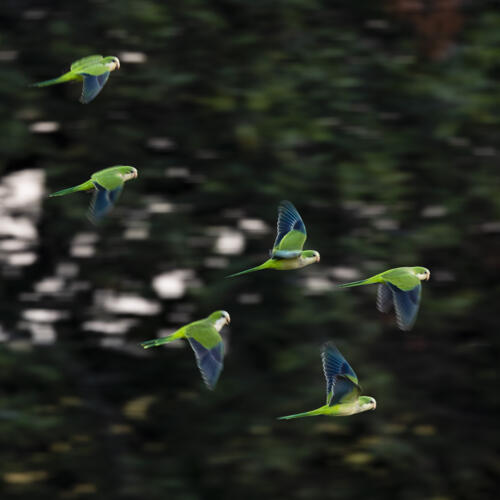 Nov 10, 2025Wetlands at COP30Read
Nov 10, 2025Wetlands at COP30Read -
News & Media
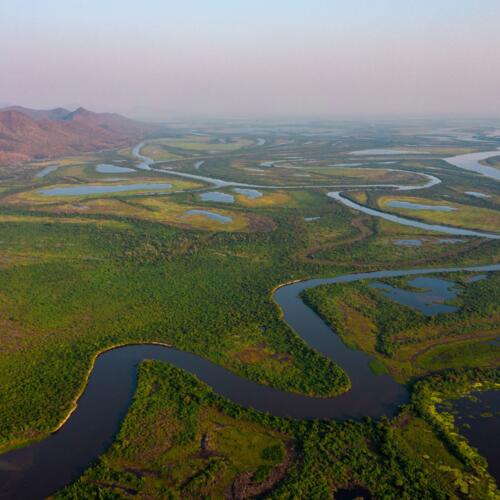 Nov 10, 2025COP30: EJF calls for urgent global action to protect wetlands - Earth’s carbon vaultsRead
Nov 10, 2025COP30: EJF calls for urgent global action to protect wetlands - Earth’s carbon vaultsRead -
Reports
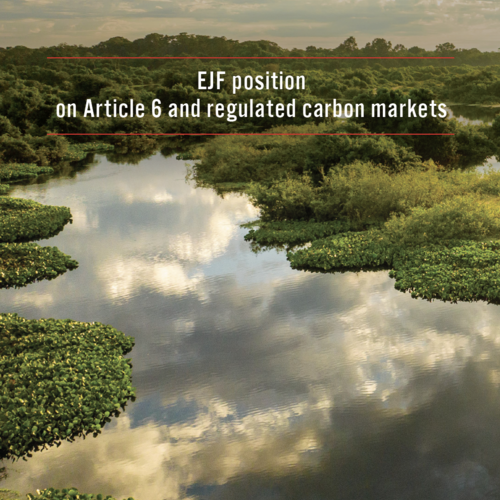 Nov 05, 2025EJF position on Article 6 and regulated carbon marketsRead
Nov 05, 2025EJF position on Article 6 and regulated carbon marketsReadThis paper outlines EJF’s stance on carbon credits and the markets in which they are traded, highlighting the role they should play in climate negotiations and efforts to decarbonise the global economy. Under certain stringent conditions, carbon credits can play a role in achieving climate targets, but they are not a substitute for ambitious and decisive action to reduce greenhouse gas emissions.
-
Reports
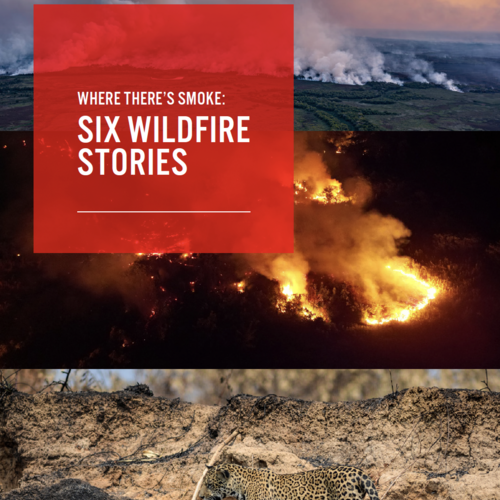 Nov 05, 2025Where there's smoke: six wildfire storiesRead
Nov 05, 2025Where there's smoke: six wildfire storiesReadThrough first-hand accounts, testimonies from environmental defenders and expert insights, this report explores how fires are reshaping the map of risk, deepening inequalities and threatening lives, while reflecting on what must change to stop this crisis from escalating further.
-
Films
 Oct 31, 2025Together we are strong: Liberia's fishmongers building fairer fisheriesRead
Oct 31, 2025Together we are strong: Liberia's fishmongers building fairer fisheriesReadTogether we are strong: Liberia's fishmongers building fairer fisheries
-
Films
 Oct 31, 2025Communities for Fisheries: The lasting impact – an EJF filmRead
Oct 31, 2025Communities for Fisheries: The lasting impact – an EJF filmReadCommunities for Fisheries: The lasting impact – an EJF film
-
Reports
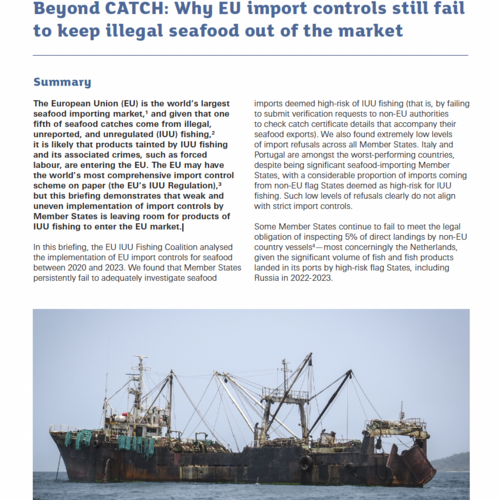 Oct 27, 2025Beyond CATCH: Why EU import controls still fail to keep illegal seafood out of the marketRead
Oct 27, 2025Beyond CATCH: Why EU import controls still fail to keep illegal seafood out of the marketReadThe EU may have the world’s most comprehensive import control scheme on paper, but this briefing demonstrates that weak and uneven implementation of import controls by Member States is leaving room for products of illegal, unreported and unregulated fishing to enter the EU market.
-
News & Media
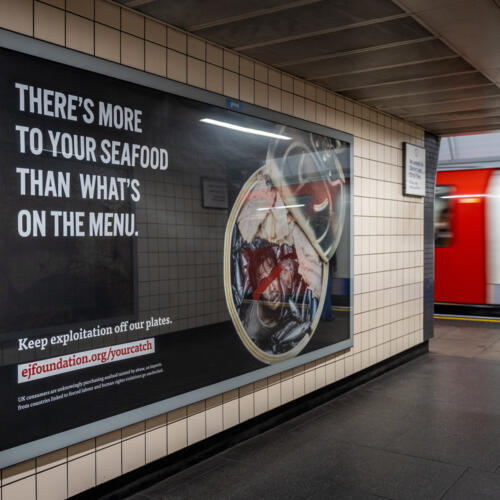 Oct 21, 2025London Underground posters call on the UK Government to stop seafood ‘criminal catches’Read
Oct 21, 2025London Underground posters call on the UK Government to stop seafood ‘criminal catches’Read
-
News & Media
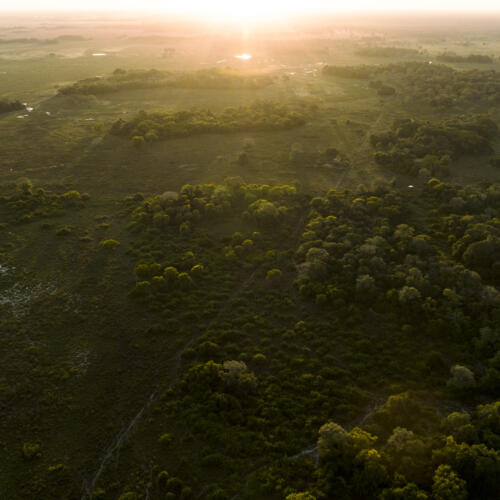 Oct 17, 2025Les zones humides d'eau douce : héros climatiques méconnus de la planète sont en train de disparaître, met en garde un nouveau rapportRead
Oct 17, 2025Les zones humides d'eau douce : héros climatiques méconnus de la planète sont en train de disparaître, met en garde un nouveau rapportRead -
News & Media
 Oct 17, 2025Humedales de agua dulce: héroes climáticos olvidados del mundo están desapareciendo, advierte un nuevo informeRead
Oct 17, 2025Humedales de agua dulce: héroes climáticos olvidados del mundo están desapareciendo, advierte un nuevo informeRead -
News & Media
 Oct 17, 2025Freshwater wetlands: the world’s overlooked climate heroes are disappearing, warns new reportRead
Oct 17, 2025Freshwater wetlands: the world’s overlooked climate heroes are disappearing, warns new reportRead -
Reports
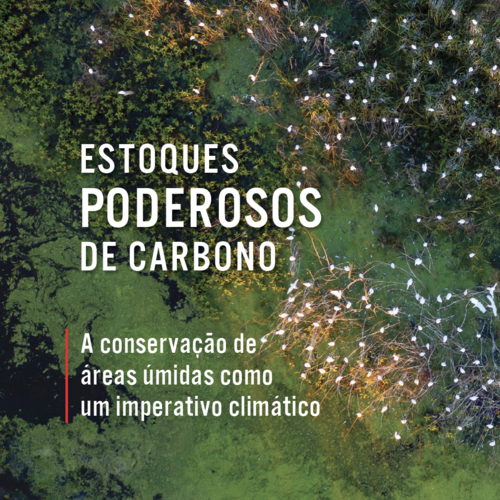 Oct 13, 2025Estoques poderosos de carbono: A conservação de áreas úmidas como um imperativo climáticoRead
Oct 13, 2025Estoques poderosos de carbono: A conservação de áreas úmidas como um imperativo climáticoRead
